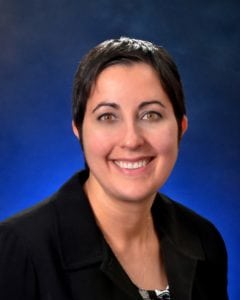As we begin the High Holy Day season, it is a time to reflect on the year that has passed. In what ways did we live up to our expectations? In what ways did we fail? What do we regret? Is there anger or pain in our hearts that we can release before a new year begins? Do we feel satisfied by the ways we are using the gift of time that we have been given? What can we do to make right the wrongs for which we are responsible? In what ways does being responsible mean response-able?
These are all important questions for us to ask … as individuals, and as a community. As we prepare to recite prayers delineating “our alphabet of woe” and asking for forgiveness for the sin of xenophobia and intolerance, we are called to ask this very question: In what ways does being responsible mean being response-able? How have we failed to respond to intolerance and prejudice?
Sadly, this past year, we have seen a resurgence of hatred and intolerance around the world. For many of us, we may find ourselves remembering the poem by Pastor Martin Niemoller:
First they came for the socialists, and I did not speak out –because I was not a socialist.
Then they came for the trade unionists, and I did not speak out – because I was not a trade unionist.
Then they came for the Jews, and I did not speak out –
because I was not a Jew.
Then they came for me – and there was no one left to speak for me
As we reflect upon the year that has passed, in what ways have we failed to speak up? Our mandate as Jews, is to do “tikkun olam” – to heal and repair the world. What can we do this coming year that will make a difference?
Specifically, as Jews, the responsibility to address rising levels of anti-Semitism is also a call to speak to other forms of prejudice and stigma that we may encounter. When we are a witness, and we do not speak up, we become complicit.
Personally, as a child of a Holocaust survivor, I have felt particularly called to fight anti-Semitism along with every other “ism” that I encounter.
I am grateful for my unique role at Jewish Hospital, and for working within a larger Catholic health care setting, to provide education and awareness about the Jewish tradition to individuals who may never have met a rabbi, or even a Jew, before.
It is a profound privilege and opportunity to support the healing encounters of our Jewish Hospital patients, many of whom may have no knowledge or understanding of Judaism, but for the life-saving and compassionate care that they receive at our hospital. It is my hope and prayer that because of their experiences, they gain a new appreciation for Judaism, even if they still do not know much about the faith.
I am proud of Jewish Hospital’s commitment to tikkun olam, which is reflected in our care for the underserved. Many of our patients have no health insurance and no personal resources, yet we treat them with the exact same reverence that we treat for those who do. Every day, we try to live out our Jewish values – as do the other Jewish organizations in our city.
I believe that each of these encounters that we, as a Jewish community, have with the world at large demonstrates our integrity and goes a long way toward preventing anti-Semitism. Too often, prejudice stems from ignorance, specifically, a lack of personal experience with a group. We are all ambassadors to the world at large.
I am always touched by the numbers of responses I receive from individuals who read one of my Shabbat Shalom emails; they share with me how surprised they are that a reflection, based in Jewish tradition, was meaningful to them as non-Jews.
I hope that each person whose life is positively impacted by a Jewish person or Jewish organization will become an advocate, and speak up when they hear anti-Semitism. Hopefully, they will develop a questioning attitude toward other prejudices as well.
Recently, the Jewish Heritage Fund for Excellence announced that it had received an additional $150 million dollars from Catholic Health Initiatives, as part of the transitions that are planned for the KentuckyOne Health Louisville market facilities, including the sale of Jewish Hospital to a new owner that will hopefully continue to support our expanded mission to care for all those in need. I give thanks for these additional funds, which will be used to provide additional resources to support tikkun olam in our community.
In 5778, may each of us be blessed with health and hope, courage and joy. May this year give us more opportunities to partner with the Source of Creation in the ongoing sacred work of tikkun olam. May we learn from all that came before us, and may this wisdom lead us to continue to improve our ability to respond to the Eternal One’s call to each of us, with the word: “Hineini” (Here I am).
(Rabbi Nadia Siritsky is vice president of mission at KentuckyOne Hleath.)




